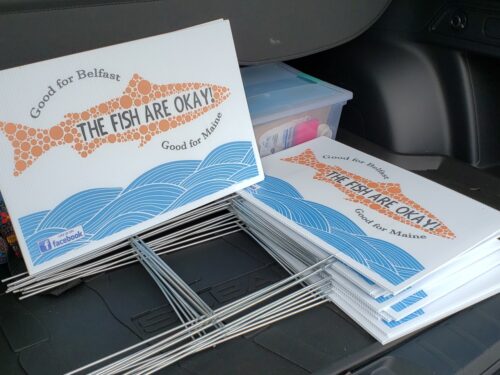As the fevered atmosphere cools down somewhat following Canada’s decision to extend salmon farming licenses in British Columbia by two years, there’s still disbelief about the upheaval happening in the province’s farmed salmon industry.
There are many questions in the mind of industry players not just in BC but those around the world who are watching events unfold. One of those questions is: Why has British Columbia gotten to the stage that it has?
That’s, at least, one of the questions that Sebastian Belle, Executive Director of the Maine Aquaculture Association, is asking.
Perplexed
“I think many other places in the world, not just Maine – I know my colleagues in Europe, my colleagues in Scandinavia, my colleagues in Chile – are all looking at the BC situation and thinking about it, thinking about why BC got to the stage that it has,” says Belle.
They are bewildered, he says, “particularly in light of the fact that – at least from a biological perspective – BC has some of the best growing conditions in the world for salmon.”
“People are kind of replaying their memories about how BC started and how it evolved over time to where it is now, and asking themselves: How did that happen? Why did that happen? (opens in a new tab)
“How could we learn from those lessons and try not to end up in the same position as BC has?”

Working waterfront culture
When this journalist pointed out that the difference might be that BC is primarily urban thus the loudest critics are the urbanites who are not in touch with the sentiments of working people in coastal communities, Belle says Maine too has dealt with activists for the past 25 years.
“We had similar a phenomenon, but I think what is really different about Maine is that Maine has a very strong relationship within the working waterfront community. And so we have always worked together with the commercial fishing community, with the infrastructure companies that provide goods and services to commercial fishing. There’s never been a divide there. And we’ve also always historically worked very closely with the environmental community. I sit on a bunch of boards that are for environmental groups and vice versa,” says Belle.
Indeed, the decline of fisheries in Maine is what’s inducing the expansion of its aquaculture industry. Many see fish farming as another venue to earn income when fisheries is off season.
“Certainly there’s a recognition that if working waterfront communities are going to survive they have to use some new tools to diversify their economic base and aquaculture is one of those. There’s interest in those coastal communities in aquaculture because it is a way for those communities to maintain their maritime heritage,” Belle said in an earlier interview.
Not in my backyard
But he now says the makeup of Maine’s community has changed, with the pandemic bringing in people who might not have a full understanding of aquaculture.

“Covid has certainly accelerated some of the demographic changes that are happening in our coastal communities.
“We’ve had a lot of people move to Maine from what we would say ‘from far away’ – some are retiring here, while others come here because now they can work remotely. Those new residents often have questions about working waterfronts, and it’s incumbent on us and our brothers and sisters in the commercial fishing community to educate those new residents to explain to them what we do, what we don’t do, and to try and help them understand better how working waterfronts are so crucial to year-round communities in Maine,” says Belle.
He also noted that “there are a couple of activists that have recently emerged that are being paid by wealthy summer people” who have the “not-in-my-backyard” (NIMBY) attitude. “That’s a new phenomenon in Maine,” says Belle.
“But, I would say what makes Maine quite unique is it’s a small community, a kind of solutions-focused community. And we just we all try to work together.”









